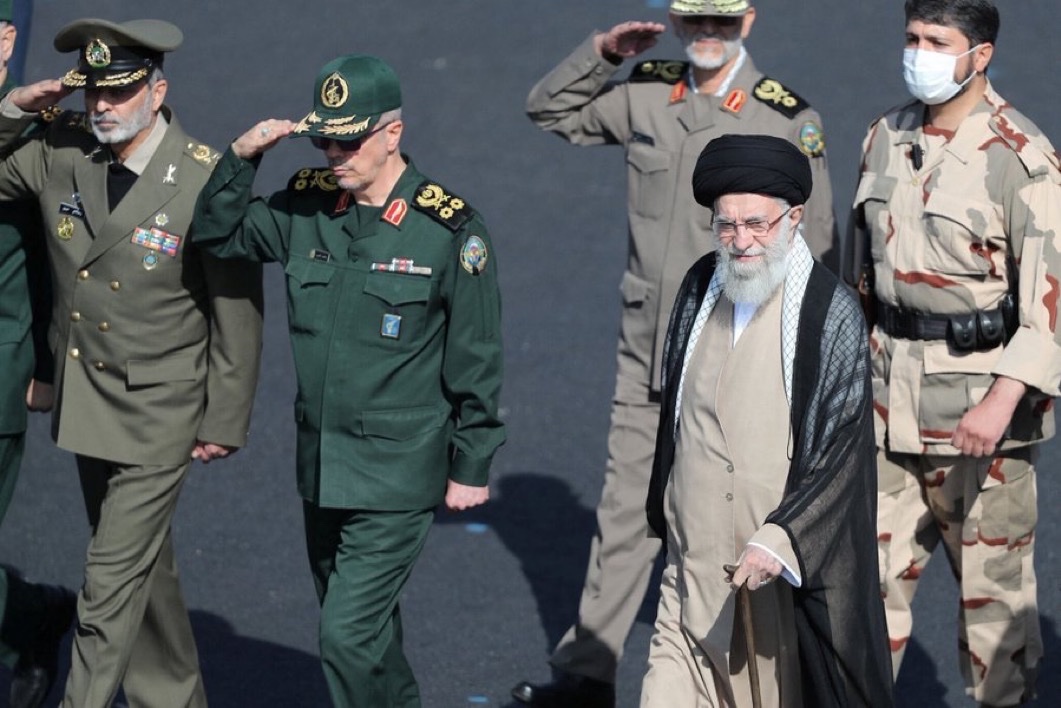World
Iran still has capacity to resume bomb-grade uranium enrichment – UN watchdog chief warns

Despite recent military strikes on Iranian nuclear facilities, the head of the UN’s atomic watchdog says Tehran could restore its uranium enrichment capabilities for a nuclear bomb in just a few months.
Rafael Grossi, director general of the International Atomic Energy Agency (IAEA), told CBS News that Iran retains the technological means and infrastructure to restart high-level enrichment if it chooses. He spoke amid lingering uncertainty over the effectiveness of recent US and Israeli attacks on Iranian nuclear sites.
“Frankly speaking, one cannot claim that everything has disappeared and there is nothing there,” Grossi said on Saturday, contradicting former US President Donald Trump’s assertion that Iran’s nuclear facilities were “totally obliterated.”
READ ALSO:Iran holds mass funeral for top commanders, nuclear scientists killed by Israel
Earlier this month, on June 13, Israel launched airstrikes on several Iranian military and nuclear locations, citing concerns that Iran was nearing nuclear weapons capability. The US followed suit, striking facilities at Fordo, Natanz, and Isfahan.
While the full scope of the damage remains unclear, Grossi indicated that Iran’s ability to resume uranium enrichment was far from eliminated. He said that Iran could have “in a matter of months… a few cascades of centrifuges spinning and producing enriched uranium.”
He further noted: “They still possess the industrial and technological capacities… so if they so wish, they will be able to start doing this again.”
The IAEA’s assessment aligns with a recent report from the Pentagon, which concluded that the joint US-Israeli strikes only set back Iran’s nuclear progress by a few months.
In response, Trump dismissed those evaluations, claiming the attacks were among “the most successful military strikes in history” and criticized the media for undermining their impact.
Meanwhile, a temporary ceasefire appears to be holding between Iran and Israel, though Trump stated he would “absolutely” consider renewed military action should intelligence suggest Iran is once again enriching uranium at dangerous levels.
Iran’s internal messaging about the damage has been mixed. Supreme Leader Ayatollah Ali Khamenei said the strikes caused minimal disruption, but Foreign Minister Abbas Araghchi described the damage as “excessive and serious.”
Tensions with the IAEA escalated further last week when Iran’s parliament voted to suspend cooperation with the agency, accusing it of bias toward Western powers.
The move came shortly after the IAEA reported that Iran had violated key non-proliferation commitments for the first time in two decades.
Iran maintains that its nuclear activities are purely civilian and peaceful in nature. Nevertheless, Grossi expressed hope that diplomatic engagement could still prevail.
“I have to sit down with Iran and look into this, because at the end of the day, this whole thing, after the military strikes, will have to have a long-lasting solution, which cannot be but a diplomatic one,” he said.
Under the 2015 nuclear deal with world powers, Iran agreed to cap uranium enrichment at 3.67% and halt activity at Fordo for 15 years. That agreement was upended in 2018 when Trump withdrew the US and reimposed sanctions, arguing the deal was too lenient.
In response, Tehran began breaching the pact’s limits, resuming enrichment at Fordo in 2021 and, according to the IAEA, stockpiling enough uranium enriched to 60% purity to potentially build nine nuclear bombs.
(BBC)


























